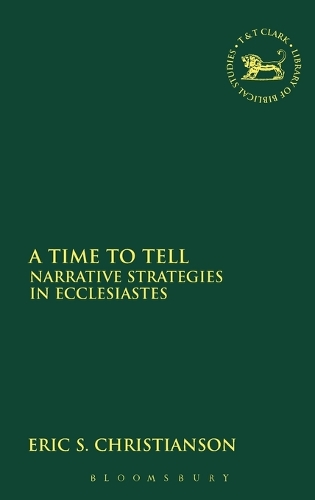
A Time to Tell: Narrative Strategies in Ecclesiastes
(Hardback)
Publishing Details
A Time to Tell: Narrative Strategies in Ecclesiastes
By (Author) Eric S. Christianson
Bloomsbury Publishing PLC
Sheffield Academic Press
1st December 1998
United Kingdom
Classifications
Tertiary Education
Non Fiction
Judaism
Criticism and exegesis of sacred texts
223.8066
Physical Properties
Hardback
299
608g
Description
Using a variety of approaches from art criticism to structuralist analysis, this book draws out largely neglected narrative elements of Qoheleth's text, including the strategies of framing, autobiography and the 'use' of Solomon. In locating the self as the central concern of this narrative, Christianson shows that although Qoheleth passionately observes the world's transience, he desires that his own image be fixed and remembered. His story is thereby concerned with identity and the formation of character. In the guise of Solomon that concern is almost satirical and somewhat playful. Through the strategy of the frame narrative the complex relations of all such elements are brought into question, particularly the reader's relation to the framed material, as well as the relation of the framer to the one framed.
Reviews
'The book of Qohelet doesn't state its ideas directly; it narrates them through a persona-a fact largely neglected in Bible scholarship. Christianson has undertaken the first full-length analysis of this literary strategy and its implications. He
'By uncovering the narrative dimensions of the book, Christianson offers a bold new reading of Ecclesiastes and a robust treatment of the troubled sage who is redeemed by absurdity. Building on the insights of previous scholars and in conversation with the contemporary arts, Christianson has charted a new course of research on the Bible's strangest book.' --William P. Brown, Associate Professor of Old Testament, Union Theological Seminary and Presbyterian School of Christian Education.
Author Bio
Eric Christianson is Lecturer in Biblical Studies, Department of Theology and Religious Studies, Chester College of Higher Education.
